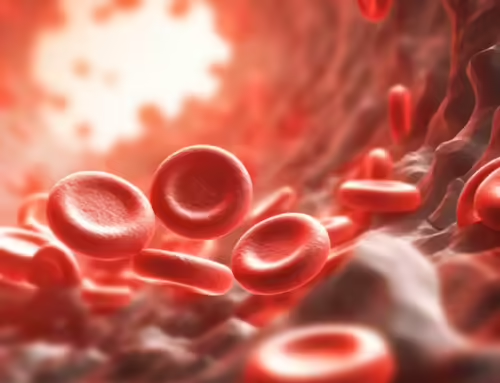Does Cocaine Suppress Appetite?
Cocaine is a powerful stimulant known for its intense and immediate effects on the central nervous system. Among the various aspects of cocaine use is its impact on appetite.
Does cocaine suppress appetite? Yes, it does. Cocaine significantly reduces appetite, often leading to substantial weight loss in users. This appetite suppression is one of the reasons why cocaine is sometimes abused by individuals seeking to lose weight quickly.
What Does Cocaine Do to Your Stomach?
Cocaine’s effects are not limited to the brain and nervous system; it also has considerable impacts on the gastrointestinal system, particularly the stomach.
Immediate Effects on the Stomach
1. Reduced Appetite: Cocaine’s stimulant properties decrease feelings of hunger, making users less likely to eat.
2. Nausea and Vomiting: Many users experience nausea and vomiting, which can further reduce food intake and lead to dehydration.
3. Abdominal Pain: Cocaine use can cause stomach cramps and pain, often related to reduced blood flow to the gastrointestinal tract.
Long-term Effects on the Stomach
1. Gastrointestinal Ischemia: Chronic use can lead to reduced blood flow to the stomach and intestines, causing severe pain and potentially leading to tissue death (necrosis).
2. Ulcers: The stress and strain cocaine places on the stomach lining can lead to the development of ulcers.
3. Malnutrition: Ongoing appetite suppression can result in malnutrition and deficiencies in essential nutrients, impacting overall health.
Short-Term Effects of Cocaine
Cocaine’s short-term effects are well-documented and contribute to its reputation as a highly addictive and dangerous drug.
Physical Effects
1. Increased Energy and Alertness: Users often feel a surge of energy and heightened alertness.
2. Elevated Heart Rate and Blood Pressure: Cocaine increases cardiovascular activity, leading to a faster heartbeat and higher blood pressure.
3. Dilated Pupils: Pupils become enlarged due to the drug’s stimulant effects.
Psychological Effects
1. Euphoria: Cocaine induces intense feelings of euphoria, making users feel incredibly happy and confident.
2. Increased Sociability: Many users feel more talkative and friendly while under the influence.
3. Paranoia and Anxiety: Despite the initial euphoria, cocaine can also cause anxiety and paranoia, particularly at higher doses.
Gastrointestinal Effects
1. Decreased Appetite: As mentioned earlier, cocaine significantly reduces appetite, leading to less food intake.
2. Nausea: Users often experience nausea, which can be exacerbated by the drug’s effects on the stomach.
3. Abdominal Pain: Stomach pain is joint and sometimes severe.
Long-Term Effects of Cocaine
Long-term cocaine use can lead to a host of severe health issues, affecting multiple systems in the body.
Cardiovascular Effects
1. Heart Disease: Chronic use increases the risk of developing heart disease, including heart attacks and strokes.
2. Arrhythmias: Long-term use can lead to irregular heartbeats, which can be life-threatening.
3. Hypertension: Persistent high blood pressure is standard among long-term users.
Neurological Effects
1. Cognitive Decline: Prolonged use can lead to memory problems, difficulty concentrating, and other cognitive deficits.
2. Mental Health Disorders: Chronic use is associated with an increased risk of anxiety, depression, and psychosis.
3. Brain Damage: Long-term cocaine use can cause significant damage to brain structures, leading to long-lasting neurological issues.
Gastrointestinal Effects
1. Severe Malnutrition: Persistent appetite suppression often leads to severe malnutrition and weight loss.
2. Gastrointestinal Ischemia and Necrosis: Reduced blood flow to the stomach and intestines can cause tissue death, leading to severe complications.
3. Digestive Issues: Chronic use can lead to ongoing digestive problems, including severe abdominal pain, constipation and ulcers.
Social and Economic Effects
1. Relationship Strain: Addiction can lead to strained relationships with family and friends.
2. Financial Difficulties: The cost of maintaining a cocaine habit can lead to significant financial problems.
3. Legal Issues: Cocaine use can result in legal troubles, including arrests and incarceration.
Cocaine suppresses appetite, leading to significant reductions in food intake and potential weight loss. The drug’s effects on the stomach and overall gastrointestinal system can be severe, contributing to malnutrition and other health complications. The short-term effects of cocaine use include increased energy, euphoria and decreased appetite, while the long-term effects can be devastating, affecting the cardiovascular, neurological and gastrointestinal systems.
Understanding these risks is crucial for anyone using cocaine, considering cocaine use or supporting individuals struggling with cocaine addiction. Recognizing the comprehensive impact of cocaine on the body, particularly its ability to suppress appetite and damage the stomach can inform better prevention and treatment strategies.





